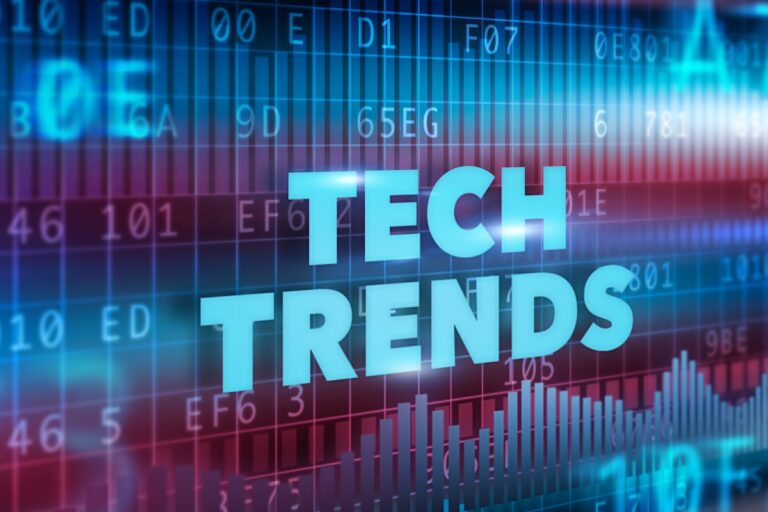The pace of technological evolution in 2023 was incredibly fast, leading many to wonder if 2024 will slow down. The adoption of generative artificial intelligence (AI) dominated various sectors this year, and significantly altered how we use technology. With the new year just around the corner, experts are predicting the changes and trends we can expect to see more of, and how businesses can harness these new tools and features to their advantage. Here are just a few of the tech trends that are likely to appear in 2024.
Ethical AI Practices
As AI spreads into more domains, businesses must prioritise responsible and ethical development. There will likely be increasing scrutiny around eliminating bias in AI systems and ensuring transparency. Companies have a duty to proactively address issues of racial, gender or other prejudice in training data and algorithms. Privacy also remains paramount – clear data collection and usage policies built on consent will be expected. By embedding ethical considerations into AI practices now, organisations can avoid public criticism further down the road.
Moving forward, organisations should have robust frameworks in place to assess their systems and certify that models are being developed fairly. It will become ever-more important to document AI practices for accountability and to build trust with wary customers. Government regulation around ethical AI principles and auditing is likely to ramp up as well, so businesses will need to comply with any new policies in this emerging area.
Overall, responsible stewardship of AI will be one of the defining technology trends of the upcoming year. Organisations can’t afford to ignore potential harms from biassed algorithms or opaque AI practices. Having strong in-house governance together with being proactive about eliminating discrimination from training data, will be essential.
Sustainability in Tech
Sustainability will be a major priority, with various technologies and businesses leveraged to minimise environmental impact across sectors. The use of internet of things (IoT) sensors and trackers will grow to better monitor emissions, energy usage and waste in supply chains. Blockchain solutions can also trace sustainability credentials of materials and products, from origin to consumer.
Advanced analytics and AI will crunch data collected by IoT networks to flag optimisation opportunities around energy, water consumption, logistics and more, while machine learning can identify efficiencies to reduce waste and emissions without impacting quality or output. Smart manufacturing powered by AI and industrial IoT will also gain ground.
In the energy sector, we’ll see more smart grids and metres deployed to better manage distribution,whilst growth  in renewable sources will be matched by batteries and storage innovations to ensure green energy is available anytime. Technologies like hydrogen fuel cells, carbon capture systems and biofuels will also progress.
in renewable sources will be matched by batteries and storage innovations to ensure green energy is available anytime. Technologies like hydrogen fuel cells, carbon capture systems and biofuels will also progress.
Transportation is another key focus area, with shared mobility, intelligent traffic systems, EV infrastructure and autonomous trucks and ships to curb emissions. Through holistic monitoring and data-driven insights, organisations can make sustainability intrinsic to operations. Technology will be critical to driving the environmental agenda in 2024 and beyond.
Resilience Against Cyber Threats
Cyber threats are growing more sophisticated, with attacks becoming more frequent and costly. In 2024, cybersecurity strategies will need to evolve to build resilience against emerging risks. AI, machine learning and automation will all need to be leveraged to bolster cyber defences and response for businesses and individuals alike.
Integrated security frameworks that merge detection, threat intelligence and continuity planning will gain traction. Having plans to ensure business continuity during cyber disruptions will also be a key element of resilience. As attacks grow more advanced, security layers will need to be multifaceted to stay ahead of hackers and more sophisticated routes into sensitive data.
Quantum computing could potentially crack current encryption in the future. So, developing quantum-safe cryptography and networks will become crucial. With cyber risks extending beyond IT systems, security awareness training across organisations is also important. Societal factors around disinformation and social engineering attacks require PR strategies as well.
Similarly, regulations around cybersecurity obligations and reporting are likely to increase too. To stay resilient amid the rapidly escalating threat landscape, businesses need to take a holistic and proactive approach to security, by staying on top of emerging technologies and threats as they evolve. Leveraging breakthrough technologies while also focusing on preparedness and mitigation will be vital cybersecurity trends.
Machine Customers
The rise of machine customers represents a major shift in technology and business. These are systems and algorithms capable of autonomously purchasing goods or services without human intervention. Gartner predicts that by 2030, at least 25% of consumer purchases and stock replenishment orders will be carried out by machines.
This opens up immense opportunities, with machine-driven commerce potentially generating trillions in revenue by 2030. Companies will need to adapt sales, marketing and supply chains to serve these automated clients, but those who embrace machine customers early could gain a competitive edge.
On the demand side, companies can develop interfaces and platforms to enable machines to seamlessly procure required parts, maintenance and repairs – this might involve Application Programming Interfaces (APIs), smart contracts and integrations. Understanding usage patterns of algorithmic customers will be key.
Supply-side opportunities also exist to create entirely new machine customer segments. Businesses have the opportunity to identify potential needs of emerging technologies in areas like autonomous transport, smart cities and advanced robotics. By designing offerings tailored to machine consumption, organisations can tap into substantial new revenue streams in the coming years.
Navigating the Tech Landscape
The pace of technology innovation shows no signs of slowing down. As we look ahead to 2024, emerging trends like ethical AI, sustainability tech and cyber resilience present significant opportunities as well as potential risks. Companies should make a concerted effort to monitor these developments and analyse how they may impact their operations, strategies and business models.
The trends explored in this article are just some of the technological breakthroughs set to shape industry and society in 2024 and beyond. Proactive preparation and an openness to adapt will allow businesses and the workforce to navigate the coming waves of change smoothly.
Written by Chloe Miller for SMEToday.

